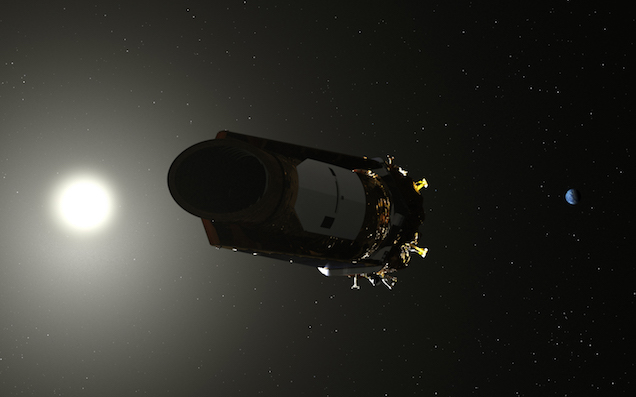
9 years, 7 months, and 23 days after it was launched, the Kepler space telescope has been retired from service.
In a press release, NASA said that the space telescope no longer had the fuel necessary to conduct ‘further scientific operations’ and they had decided to shut it down in its current orbit a safe distance away from the Earth.
The telescope was originally launched with the intention of using a photometer to continuously monitor the brightness of 150,000 stars in a fixed field of view. That information could be used to make assessments about the asteroids and planets that affected the brightness of those stars when those objects passed between the stars and the telescope.
[jwplayer gvkTjsCy]
In 2013, the failure of two components required for aiming the telescope forced NASA to rethink how they were using Kepler, which led to the ‘Second Light’ mission. This involved using the substantially lessened precision of the telescope to observe dimmer red dwarf stars in an attempt to find exoplanets, which it was wildly successful at.
During its lifetime, Kepler discovered more than 2,600 planets outside our solar system, which, according to Kepler mission founding principal investigator William Borucki, is huge:
When we started conceiving this mission 35 years ago we didn’t know of a single planet outside our solar system. Now that we know planets are everywhere, Kepler has set us on a new course that’s full of promise for future generations to explore our galaxy.
Associate Administrator of NASA’s Science Mission Directorate Thomas Zurbuchen was similarly as effusive:
As NASA’s first planet-hunting mission, Kepler has wildly exceeded all our expectations and paved the way for our exploration and search for life in the solar system and beyond. Not only did it show us how many planets could be out there, it sparked an entirely new and robust field of research that has taken the science community by storm. Its discoveries have shed a new light on our place in the universe, and illuminated the tantalizing mysteries and possibilities among the stars.
Kepler will now lie inert in cold, cold space, trailing behind the Earth, completely undisturbed until space travel is casual enough for the human race for us to go pick it up, until aliens find it, or until a hugely unlikely freak asteroid slams into it.



